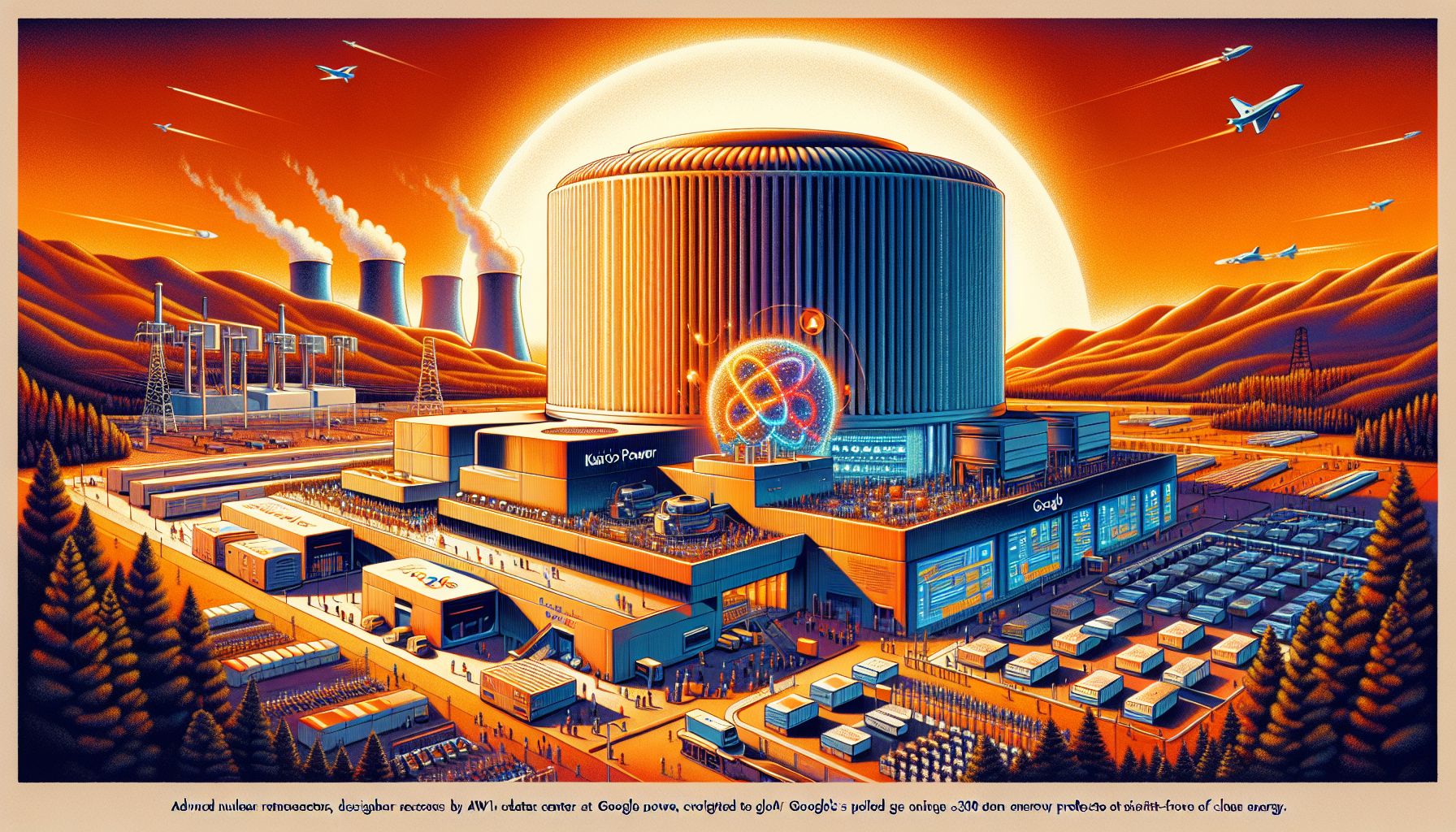Google Taps Nuclear Power for AI Data Centers

Amsterdam, Wednesday, 16 October 2024.
Google partners with Kairos Power to deploy advanced nuclear reactors, aiming to generate 500 MW of clean energy by 2035. This groundbreaking deal addresses surging electricity demands from AI technologies while supporting Google’s carbon-free energy goals. The first small modular reactor is set to go online by 2030, marking a significant shift in tech industry power sourcing.
Pioneering Clean Energy Solutions
In a landmark agreement, Google has teamed up with Kairos Power to launch a fleet of small modular reactors (SMRs) designed to meet the growing energy needs of its data centers. This collaboration marks a significant step toward sustainable energy solutions within the tech industry. Google’s decision to invest in nuclear energy aligns with its commitment to achieving 24/7 carbon-free energy, a pledge that underpins its broader environmental goals. Through this initiative, the company seeks to decarbonize its operations and reduce its carbon footprint significantly.
Innovative Reactor Technology
Kairos Power, based in Alameda, California, specializes in fluoride salt-cooled, high-temperature reactors. These reactors are designed to provide a reliable, round-the-clock power source, making them ideal for supporting the continuous operation of data centers. Set to deploy its first reactor by 2030, Kairos Power aims to roll out additional reactors through 2035, ultimately contributing 500 MW of carbon-free power to the U.S. electricity grid[1]. The technology promises to accelerate the commercialization of advanced nuclear energy by demonstrating both technical and market viability[2].
Addressing AI’s Energy Demands
The exponential growth of artificial intelligence technologies has led to a surge in electricity consumption, prompting tech giants to explore sustainable energy alternatives. For Google, the challenge lies in powering its AI data centers efficiently while maintaining environmental responsibility. The agreement with Kairos Power not only addresses this challenge but also sends a strong demand signal to the market, reinforcing the startup’s investment in nuclear technology[3]. As data centers are projected to consume 9% of U.S. electricity by 2030, this partnership could play a crucial role in supporting grid reliability and stability[4].
A Broader Industry Trend
Google’s move reflects a broader trend in the tech industry, where companies are increasingly turning to nuclear energy as a viable solution for reducing emissions and meeting energy demands. Companies like Microsoft and Amazon have also made strides in adopting nuclear power to support their operations. This shift highlights the industry’s recognition of nuclear energy’s potential to provide stable, emissions-free baseload power, essential for the uninterrupted functioning of data centers[5]. By embracing nuclear energy, tech companies are not only addressing their immediate energy needs but also contributing to the global effort to combat climate change.

